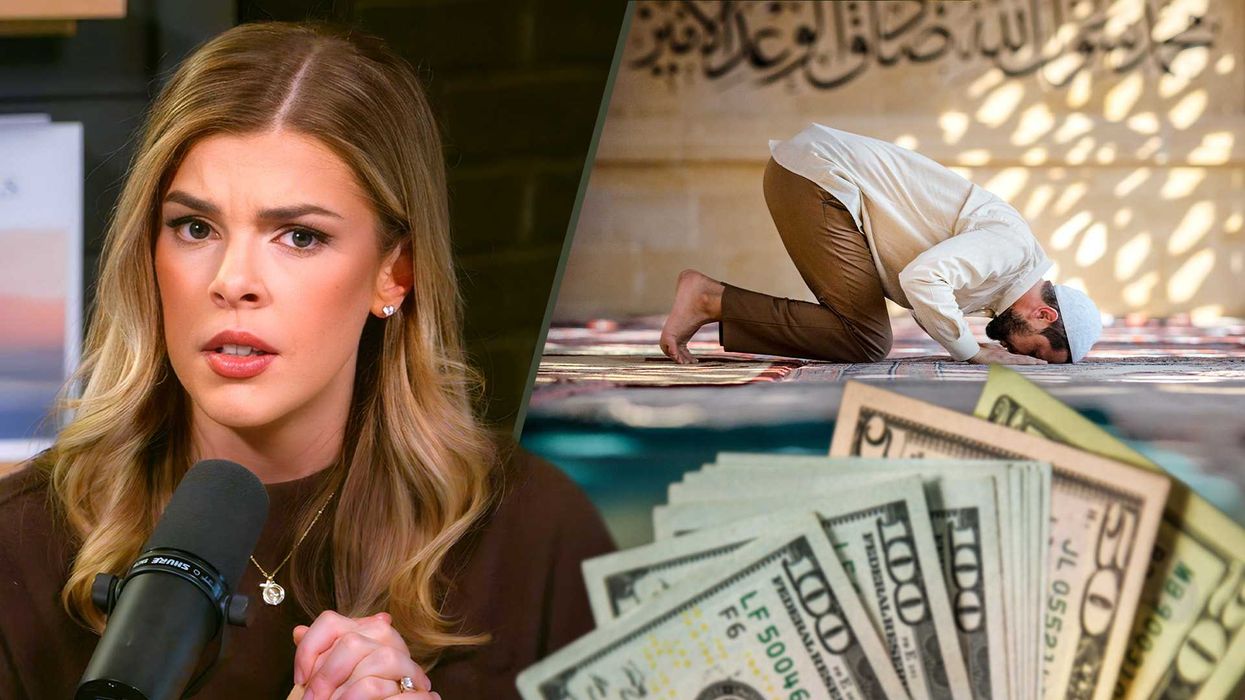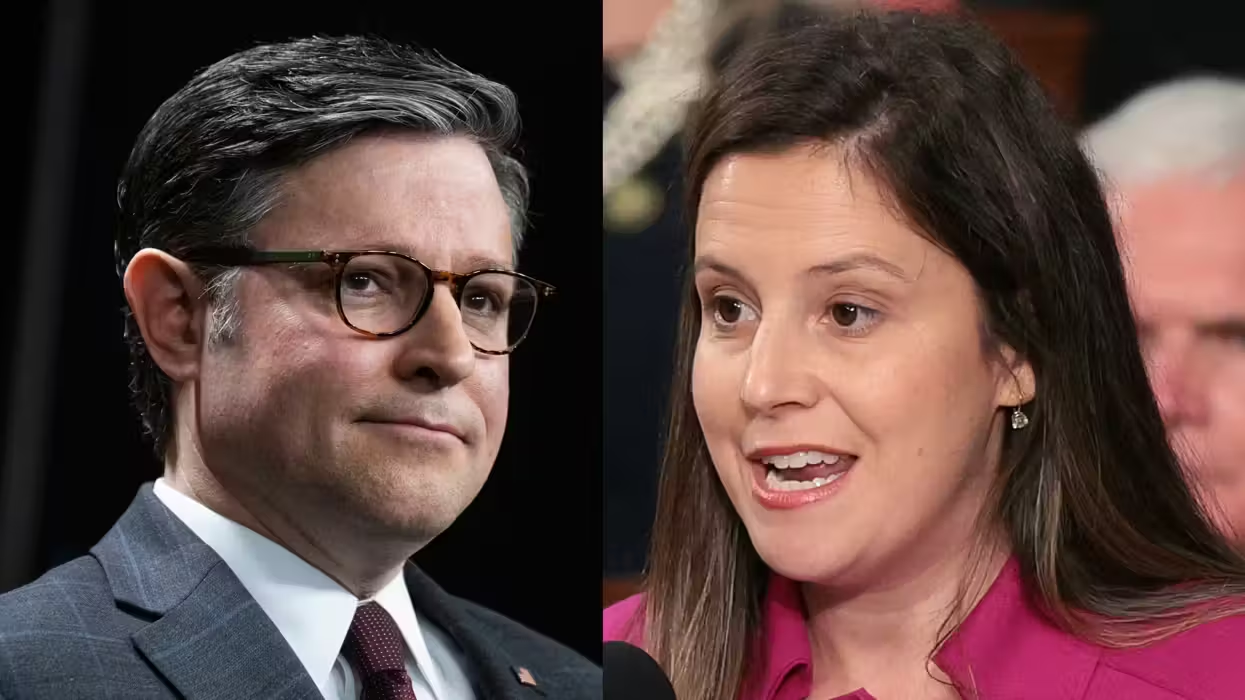While the vast majority of discussion surrounding Pope Benedict XVI's historic voluntary exit from the Catholic Church has focused upon his next steps, some critics have spent their time pushing for the faith leader to be put on trial following his departure. With Benedict preparing to vacate the papacy in just days, victims rights advocates are open about their desire for his prosecution over the abuse scandal that continues to rock the Catholic Church.
Of course, the image of the pope sitting in a courtroom is relatively outlandish -- and an unlikely development. But that hasn't stopped some from trying to legally pin the crimes of select priests on the head of the Catholic Church. The potential scenario was apparently so troublesome that it was reportedly a factor in Benedict's decision to continue taking up residence at the Vatican.
One Vatican official told Reuters that Benedict's decision to live inside the compound is a necessity in order for him to be protected from legal woes.
"His continued presence in the Vatican is necessary, otherwise he might be defenseless," the source said. "He wouldn't have his immunity, his prerogatives, his security, if he is anywhere else."
 Pope Benedict XVI acknowledges a cheering crowd of faithful and pilgrims during his second-last Angelus prayer from the window of his apartments at the Vatican, Sunday, Feb. 17, 2013, before he resigns on Feb. 28, 2013. Pope Benedict XVI blessed a cheering crowd that Rome's mayor said topped 100,000 Sunday in his first appearance from his window overlooking St. Peter's Square since the pontiff stunned the world by announcing he was resigning. So many people flocked to the event -- which doubled as a logistical trial run for the next pope's installation -- some couldn't squeeze in or out of the vast space. Credit: AP
Pope Benedict XVI acknowledges a cheering crowd of faithful and pilgrims during his second-last Angelus prayer from the window of his apartments at the Vatican, Sunday, Feb. 17, 2013, before he resigns on Feb. 28, 2013. Pope Benedict XVI blessed a cheering crowd that Rome's mayor said topped 100,000 Sunday in his first appearance from his window overlooking St. Peter's Square since the pontiff stunned the world by announcing he was resigning. So many people flocked to the event -- which doubled as a logistical trial run for the next pope's installation -- some couldn't squeeze in or out of the vast space. Credit: AP
There were apparently intricate considerations to be made in crafting Benedict's post-papal situation. Reuters reports that three alleged factors took precedence. Personal security was the first element, but another intriguing one was the risk of an outside residence inadvertently becoming a place of pilgrimage to commemorate Benedict.
Consider this: Say the new pope makes a controversial decision that conservatives dislike. In this scenario, some Catholics might visit Benedict's new location to show allegiance to him rather than to the pope currently at the helm. By keeping him at the Vatican, this won't be an issue.
The third and final consideration -- one that inside sources say played a role in keeping Benedict inside the Vatican -- is the aforementioned immunity from potential legal ramifications. Already, Benedict was named in a 2010 case for allegedly failing to take action after purportedly learning about an abusive priest when he was a cardinal in 1995. The case was inevitably withdrawn, but others have sought similar ramifications.
 Faithful attend Pope Benedict XVI Angelus Blessing at St. Peter's Square on February 17, 2013 in Vatican City, Vatican. The Pontiff will hold his last weekly public audience on February 27 at St Peter's Square after announcing his resignation last week. Credit: Getty Images
Faithful attend Pope Benedict XVI Angelus Blessing at St. Peter's Square on February 17, 2013 in Vatican City, Vatican. The Pontiff will hold his last weekly public audience on February 27 at St Peter's Square after announcing his resignation last week. Credit: Getty Images
In 2010, atheist scientist Richard Dawkins called for the pope's arrest and questioning over the sex abuse scandal. And in 2011, victims abused by clergy asked the International Criminal Court (ICC) to investigate the pope and three officials -- a request that has gone unanswered by the ICC.
"[If he lived anywhere else] then we might have those crazies who are filing lawsuits, or some magistrate might arrest him like other [former] heads of state have been for alleged acts while he was head of state," one source sold Reuters, with another adding, "While this was not the main consideration, it certainly is a corollary, a natural result."
CNN has more about potential calls for legal action against Benedict:
By remaining in the Vatican, Benedict has immunity under a 1929 agreement that was struck between Italy and the Catholic Church. The Lateran Pacts protects him while he's inside the Vatican and even when he makes trips into Italy, as the agreement established Vatican City as a sovereign state.
Benedict has apologized profusely for the abuse that unfolded and supporters allege that he has done a great deal to address these tragic incidents.
(H/T: Huffington Post/Reuters)

 Pope Benedict XVI acknowledges a cheering crowd of faithful and pilgrims during his second-last Angelus prayer from the window of his apartments at the Vatican, Sunday, Feb. 17, 2013, before he resigns on Feb. 28, 2013. Pope Benedict XVI blessed a cheering crowd that Rome's mayor said topped 100,000 Sunday in his first appearance from his window overlooking St. Peter's Square since the pontiff stunned the world by announcing he was resigning. So many people flocked to the event -- which doubled as a logistical trial run for the next pope's installation -- some couldn't squeeze in or out of the vast space.
Pope Benedict XVI acknowledges a cheering crowd of faithful and pilgrims during his second-last Angelus prayer from the window of his apartments at the Vatican, Sunday, Feb. 17, 2013, before he resigns on Feb. 28, 2013. Pope Benedict XVI blessed a cheering crowd that Rome's mayor said topped 100,000 Sunday in his first appearance from his window overlooking St. Peter's Square since the pontiff stunned the world by announcing he was resigning. So many people flocked to the event -- which doubled as a logistical trial run for the next pope's installation -- some couldn't squeeze in or out of the vast space. 





